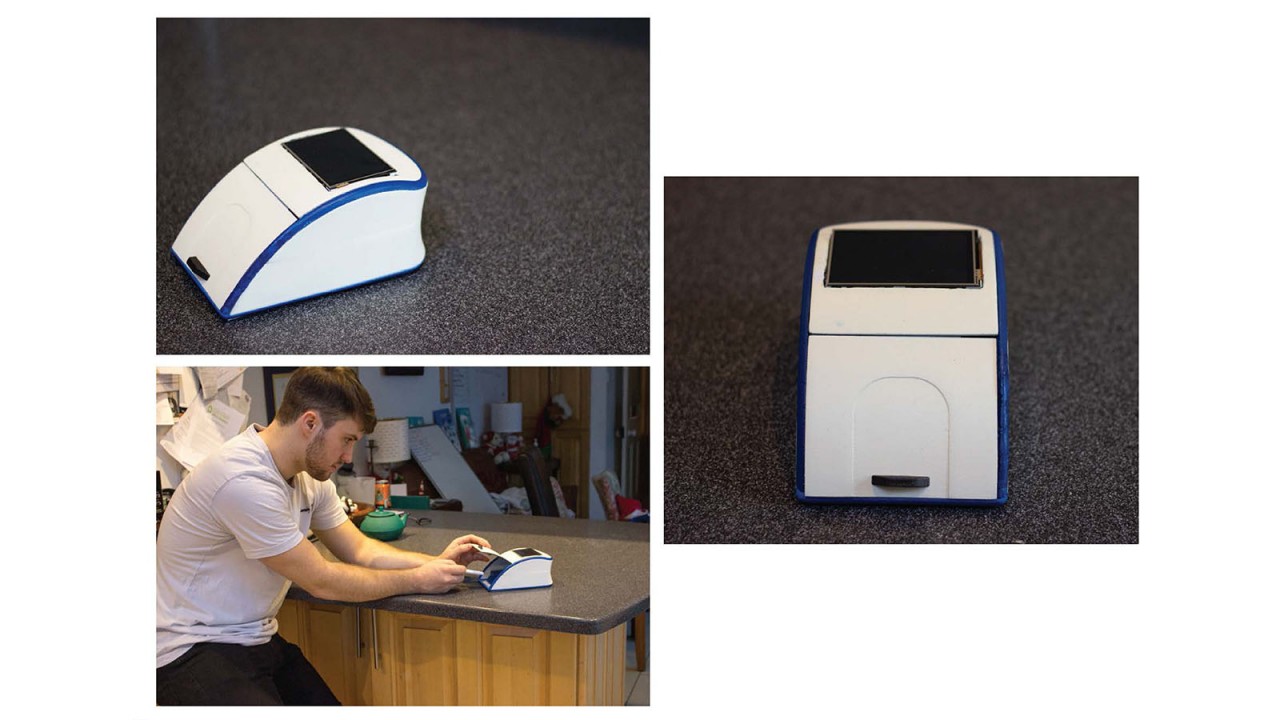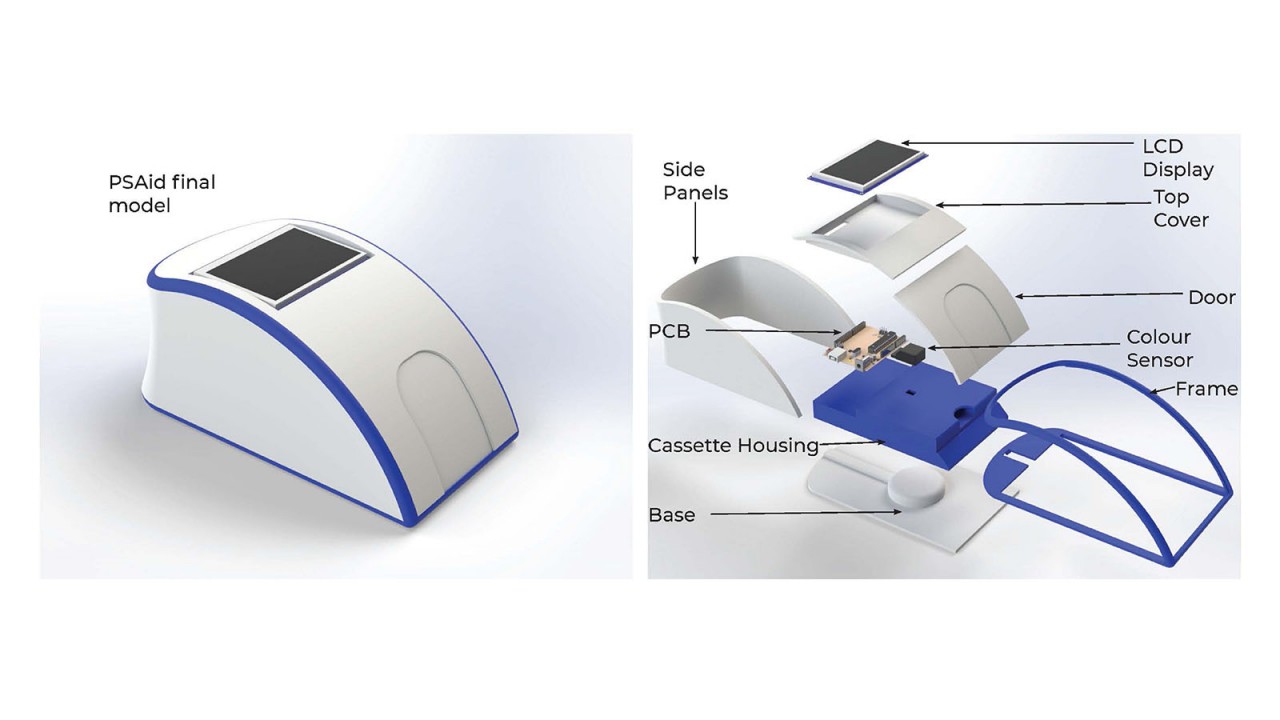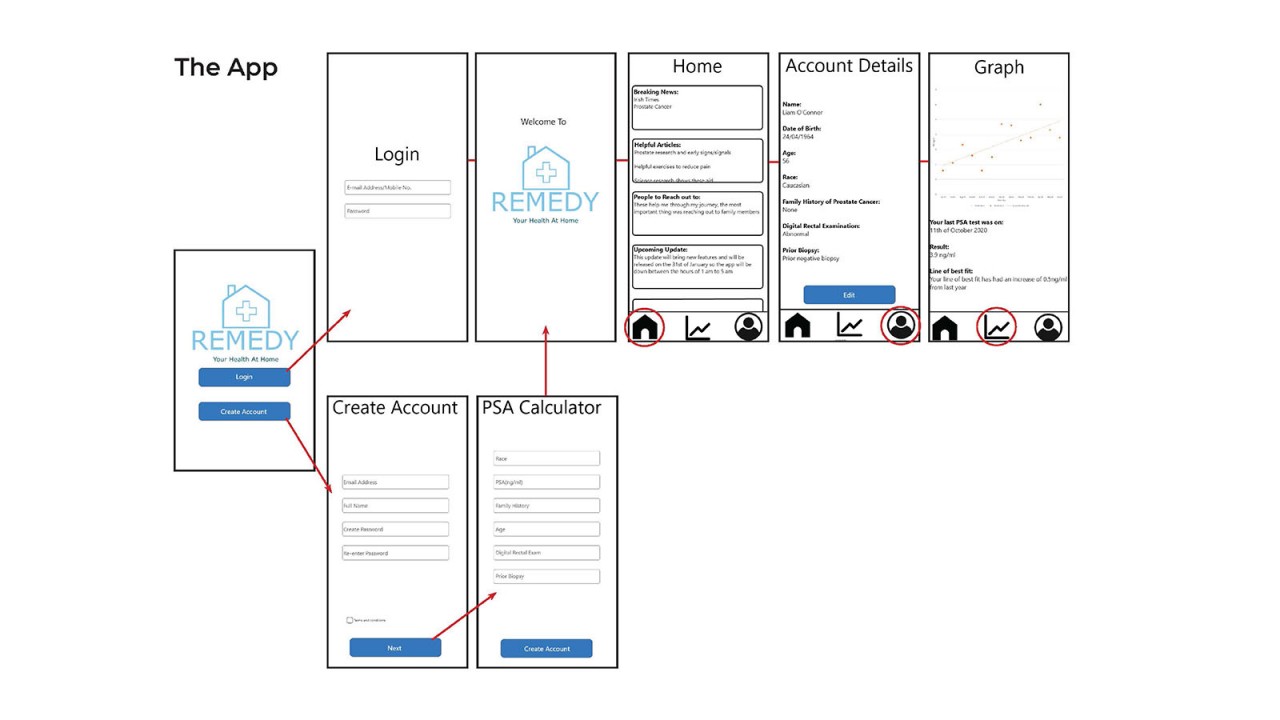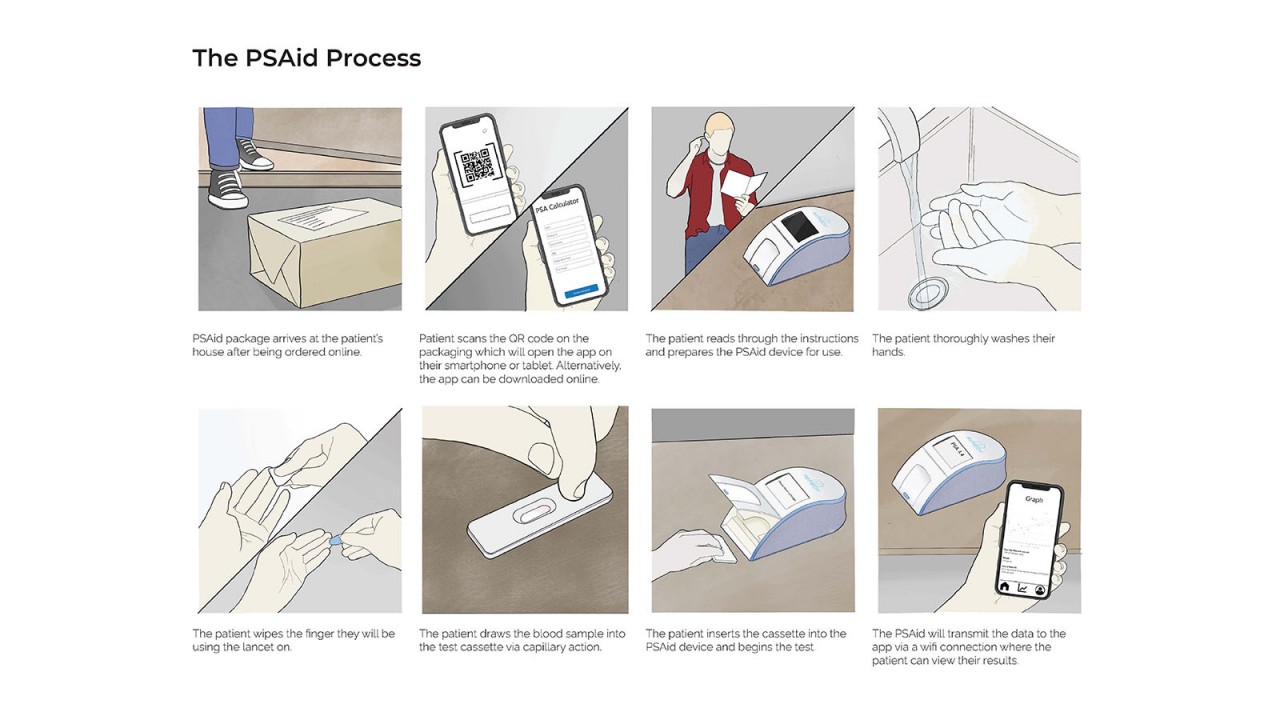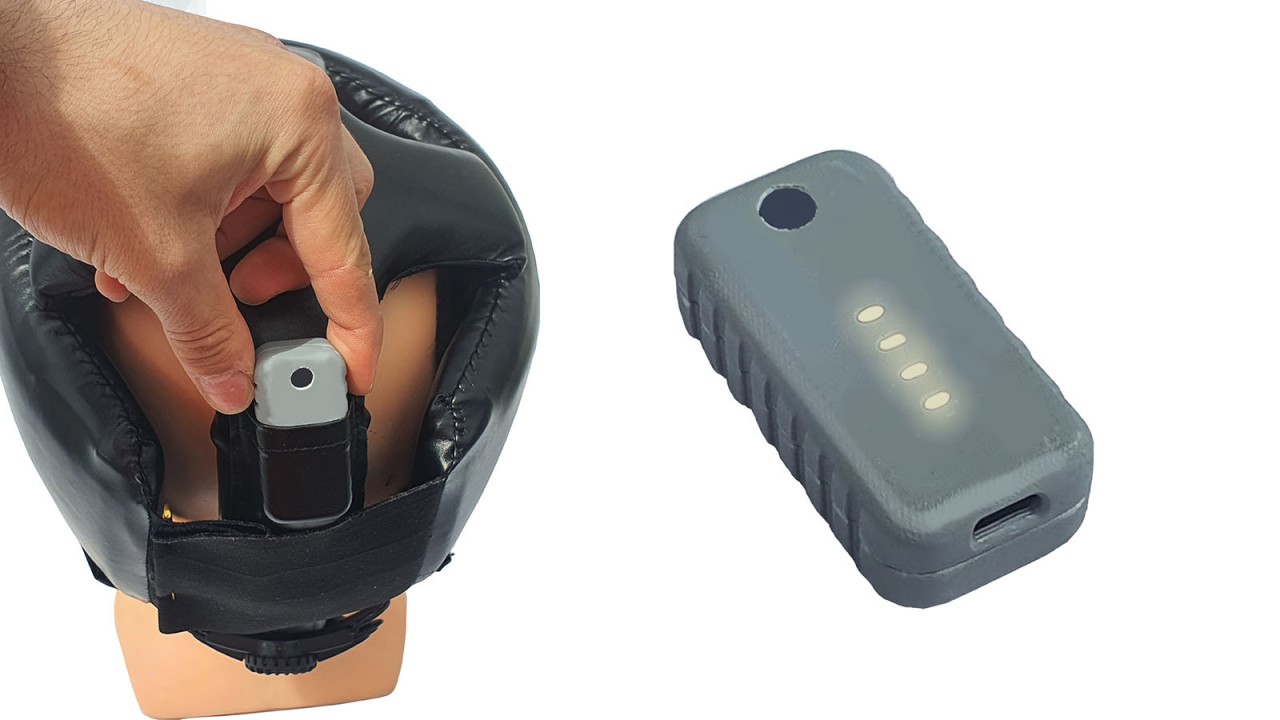PSAid
Prostate cancer is a problem that affects millions of people worldwide. One in seven men will experience prostate cancer in their lifetime. PSA or prostate specific antigen is a chemical found in blood that is a key indicator of the presence of prostate cancer. Prostate cancer patients do not monitor their PSA levels regularly enough. This is due to the high price, unwanted complications, pervasive social stigmas and a number of physical symptoms, such as incontinence, which makes it difficult for prostate cancer patients to attend doctors’ appointments.
PSAid makes this process quick, affordable and allows the user to complete it in the comfort of their own home. This gives the user the ability to monitor their PSA levels more closely, and provides them with personalised results, based on their age, race and other external factors. This decreases their likelihood of developing metastatic prostate cancer. The PSAid device uses a colour light sensor to analyse a drop of the user’s blood for the amount of PSA present and makes this information available to them in an easy-to-read format which is viewable on their mobile device. This data will also be available to view by the users’ physician through an online web portal. By making the process of assessing PSA levels easier, patients can more frequently take readings of their PSA levels and thereby increase the number of data points to give a clearer overview of the users’ health. PSAid is more sustainable than existing solutions on the market as it can be reused and does not need to be shipped to an external laboratory to evaluate results. It will also take some of the stress off the already overburdened healthcare system by keeping patients out of hospitals.
PSAid has the honour of receiving first place in the Bolton Trust Student Enterprise Awards and were semi-finalists in the Stage Two Enterprise Competition. In addition, PSAid took part in TU Dublin’s Iventure Accelerator program.
